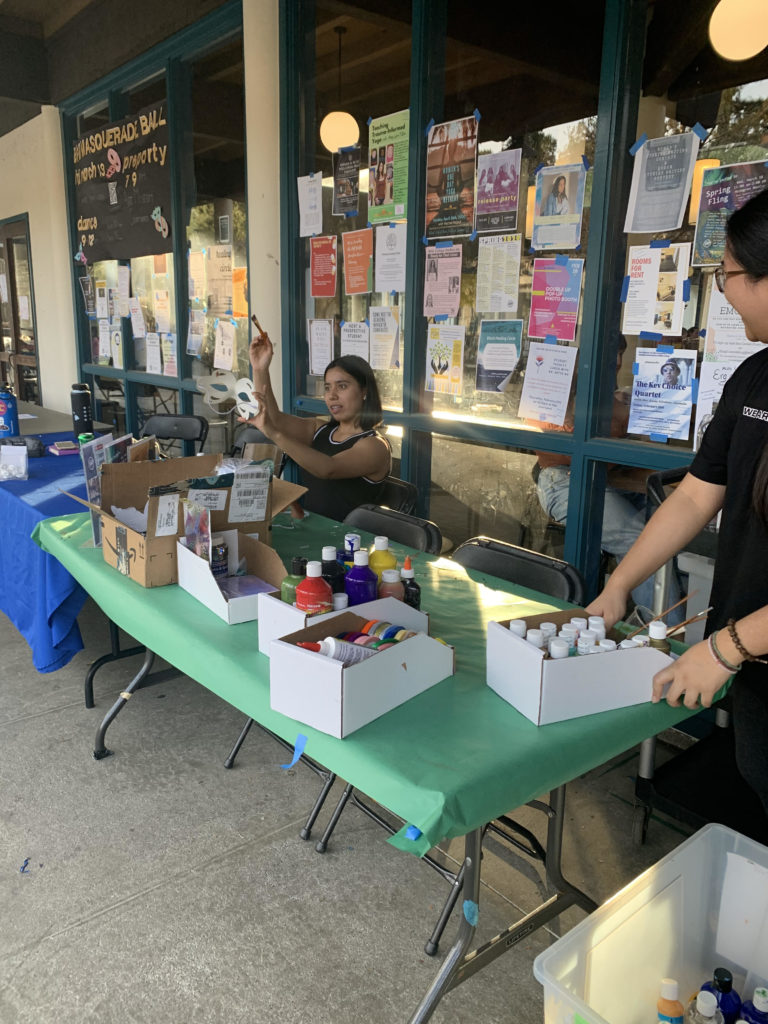Two weeks ago, Mills College students held a screening of the critically acclaimed film “The Last Black Man in San Francisco”. Despite the film winning the U.S. Dramatic award in the 2019 Sundance Film Festival and scoring 93% on Rotten Tomato’s ‘tomatometer,’ there wasn’t much of an audience in the Rothwell Theater last Thursday evening. As the film began, the 92 seat theater sat two Mills students. The two happened to find the best seats in the house, of course, front and center.

The reoccurrence of the lack of students at club and extracurricular events at Mills has become the expectation amongst student leaders and organizers.
Second-year student and resident advisor (R.A.) Grady Mahusay commented, “I think many events can have low attendance, and that’s okay because for many of us that has become the norm.”
According to the Mills College website, 1,122 students occupy the campus this year.
Mahusay later told of her experience when planning events for students. “Within my job we have to do a lot of events during the semester, it usually works out to 2-3 events a month.” She adds, “I’ve had some events in the past where there were not many, or it was just my partner and I there. I have an event on Friday that I’m nervous about the attendance because you never really know.”
Mahusay hosted a cooking event last Friday. The event encouraged Mills students to join her in making dessert-like treats while listening to music.
Danica Ola, The president of the Mills Filipinx student club Kapwa, shared, “So in the first semester I put on a ‘study café’ event and that had about 35 people show up and then I also did a ‘childhood throwbacks’ event that had 20 to 25 [students], I think… which I think are big Mills numbers!”
Why is it that a showing of an award-winning film and a pop culture themed party only attracted less than a tenth of Mills students?
“Many of us are working constantly and need to study to keep our grades up, or just don’t know about events. I found it hard last year when I was a first-year to go to events because I was working so much, and at the end of the day I didn’t really want to socialize unless there was something that was really enticing at that event. It’s incredibly hard to be someone who supports themselves and their education because at the end of the day that’s the priority,” Mahusay said.
Although many club leaders and students promote events through the Mills classifieds website, the club leader for ASAPP (Active Students Against Prisons and Policing), Jacqueline Valle, suggests promoting on other platforms to help encourage students to attend school events.
“We [ASAPP] have our own Instagram so we are always posting. … We made a WhatsApp group chat actually, that seems to work out a little better … and our club meetings usually get 20-ish people to show up, which is pretty good considering how small Mills is sometimes … and also made our own mailing list,” Valle said.

Valle also found that promoting her events using word of mouth helped her event’s success.
Both Ola and Valle shared similar thoughts on the struggle of hosting events at Mills due to the funding that their clubs receive.
“Student organizations only have $250 of spending budget per semester…. If they wanted to do something where they like bring in a speaker or like put on a bigger scale event they would definitely have to go to ASMC for a special funding meeting … [and] put on a whole presentation as to why they should receive special funding, which I think is a lot of work to create bigger scale events for students,” Valle said.
“Sometimes it can be really hard,” Jessica Olivares, a member of the Latinx Student Collective (LSC) member, said about addressing the students’ food insecurity and the struggle to provide food to students at Mills events. She explains, “folks have a very limited budget so it can be really hard to fund every single event with food,” adding that food motivates students to attend events.
Olivares believes that creating consistent events or what she calls “more intentional” events, such as “wanting to build community” or “wanting to make an event fun,” is what will help change students’ attitudes towards participating and showing up for them.
